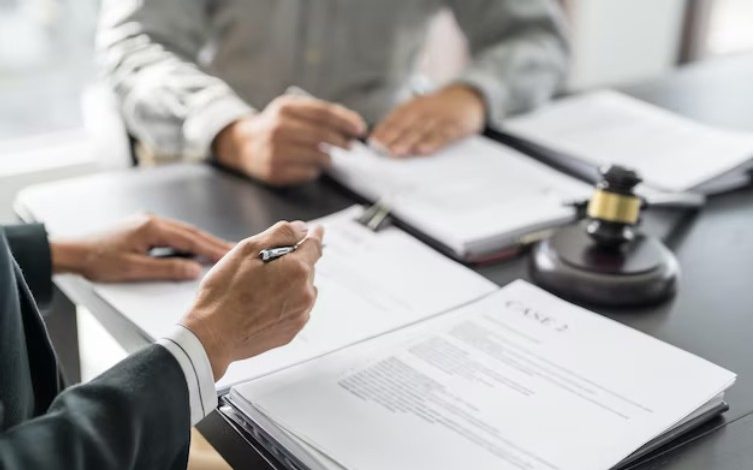How to Choose the Right Lawyers in Anchorage for Your Personal Injury Case

Everything changes when you get hurt in an accident. One moment you’re going about your day, the next you’re dealing with pain, medical appointments, and paperwork you never wanted to see. The bills start coming in while you can’t even think straight, let alone work.
When you’re facing a personal injury case, finding good lawyers in Anchorage becomes one of the most important decisions you’ll make. The wrong choice could cost you thousands of dollars in compensation you deserve. The right choice gives you a fighting chance against insurance companies that want to pay as little as possible.
But here’s the thing that scares most people: how do you choose when you’ve never needed a lawyer before? Legal ads are everywhere, each one promising to get you money. Some sounds too good to be true. Others seem legitimate but expensive. You’re already stressed about your injuries, and now you have to become an expert on something you know nothing about.
Experience Separates Good Lawyers from Great Ones
Personal injury law isn’t something you dabble in. It takes years to understand how insurance companies operate, what evidence matters most, and how to value different types of injuries properly.
Some lawyers handle a little bit of everything. They do divorces on Monday, criminal cases on Tuesday, and maybe a car accident case on Wednesday. That might work for simple matters, but personal injury cases get complicated fast.
You want someone who eats, sleeps, and breathes personal injury law. When they walk into negotiations, insurance adjusters know they’re dealing with someone who understands the game.
Ask specific questions about their recent work. How many injury cases did they handle last year? What types of accidents do they see most often? If you were hurt at work, find someone who knows workers’ compensation inside and out.
The statute of limitations rules alone can trip up inexperienced lawyers. Missing a deadline means losing your case entirely, no matter how strong your evidence might be.
What Happens When You Pick the Wrong Attorney
This is where things get scary. Choose poorly and you might watch your case fall apart in slow motion. Insurance companies have lawyers, too, and they know which attorneys will roll over at the first sign of pressure.
A weak lawyer might take whatever settlement offer comes their way. They won’t dig deep into your medical records. They won’t hire experts to prove your case. They just want to close the file and move on to the next one.
Some attorneys take on way too many cases. Your file gets buried under a pile of other people’s problems. Phone calls go unanswered. Important paperwork gets filed late. The whole thing becomes a mess that you can’t easily fix.
Perhaps worst of all, switching lawyers in the middle of a case creates its own problems. You lose time. You might have to pay two different legal fees. The new attorney has to start over with your case.
Warning Signs That Should Make You Walk Away
Lawyers who promise specific dollar amounts before they’ve even looked at your medical records are lying to you. No honest attorney can predict exactly what your case is worth during the first meeting.
High-pressure tactics are another red flag. Good lawyers want you to take time and think about your decision. They’ll answer your questions patiently because they know you’re already dealing with enough stress.
Watch out for law firms that shuffle you off to assistants and paralegals right after you sign up. Sure, these people might be helpful, but you hired a lawyer, not their staff.
Fee arrangements should be crystal clear from the start. Personal injury attorneys usually work on contingency, which means they only get paid if you win. But what percentage do they take? What about court costs and expert witness fees? Get everything in writing.
Ask Questions That Matter
The right questions reveal everything you need to know about a potential lawyer. Don’t just ask about their experience. Ask for specifics about cases similar to yours.
Communication matters more than most people realize. How often will they update you? Can you reach them when questions come up? Some lawyers disappear after the initial meeting, leaving you wondering what’s happening with your case.
In Alaska, comparative negligence rules can affect how much money you recover. If you were partially at fault for an accident, your compensation gets reduced by that percentage. Your lawyer needs to understand how this works and how it applies to your situation.
Trial experience separates the serious lawyers from the settlement mills. Most cases never see the inside of a courtroom, but insurance companies pay more when they know your lawyer will actually fight if necessary.
Understanding Legal Fees and Costs
Money talks, and legal fees matter when you’re already struggling financially. Contingency fees typically range from 33% to 40% of whatever you recover.
Some lawyers charge different percentages depending on how your case resolves. They might take one-third if it settles quickly, but bump up to 40% if they have to file a lawsuit. Ask about this upfront.
Court costs, medical record fees, and expert witness expenses add up quickly. Some lawyers pay these costs and take them out of your settlement later. Others expect you to cover them as the case moves forward. Know which arrangement you’re getting into.
Local Knowledge Makes a Difference
Alaska has its own rules about personal injury cases. Damage caps, insurance requirements, and filing deadlines differ from those in other states. Local lawyers know these details inside and out.
They also know the local medical community, which judges hear these cases, and how things typically work in Anchorage courts. That knowledge can make a real difference in how your case plays out.
Making Your Final Choice
Take time with this decision. Meet with several lawyers before picking one. Most offer free consultations for injury cases, so use that to your advantage.
Bring everything related to your accident. Police reports, medical records, insurance letters, and photos of the scene. The more information you have, the better they can evaluate your case.
The Bottom Line
Pay attention to how each lawyer treats you during the consultation. Do they seem rushed? Are they checking their phone while you’re talking? Do they ask detailed questions about your injuries?
Trust your instincts. You’ll work with this person for months, maybe years. Pick someone who makes you feel comfortable and confident about moving forward.
Your choice of attorney shapes everything that happens next. Take the time to choose well.



